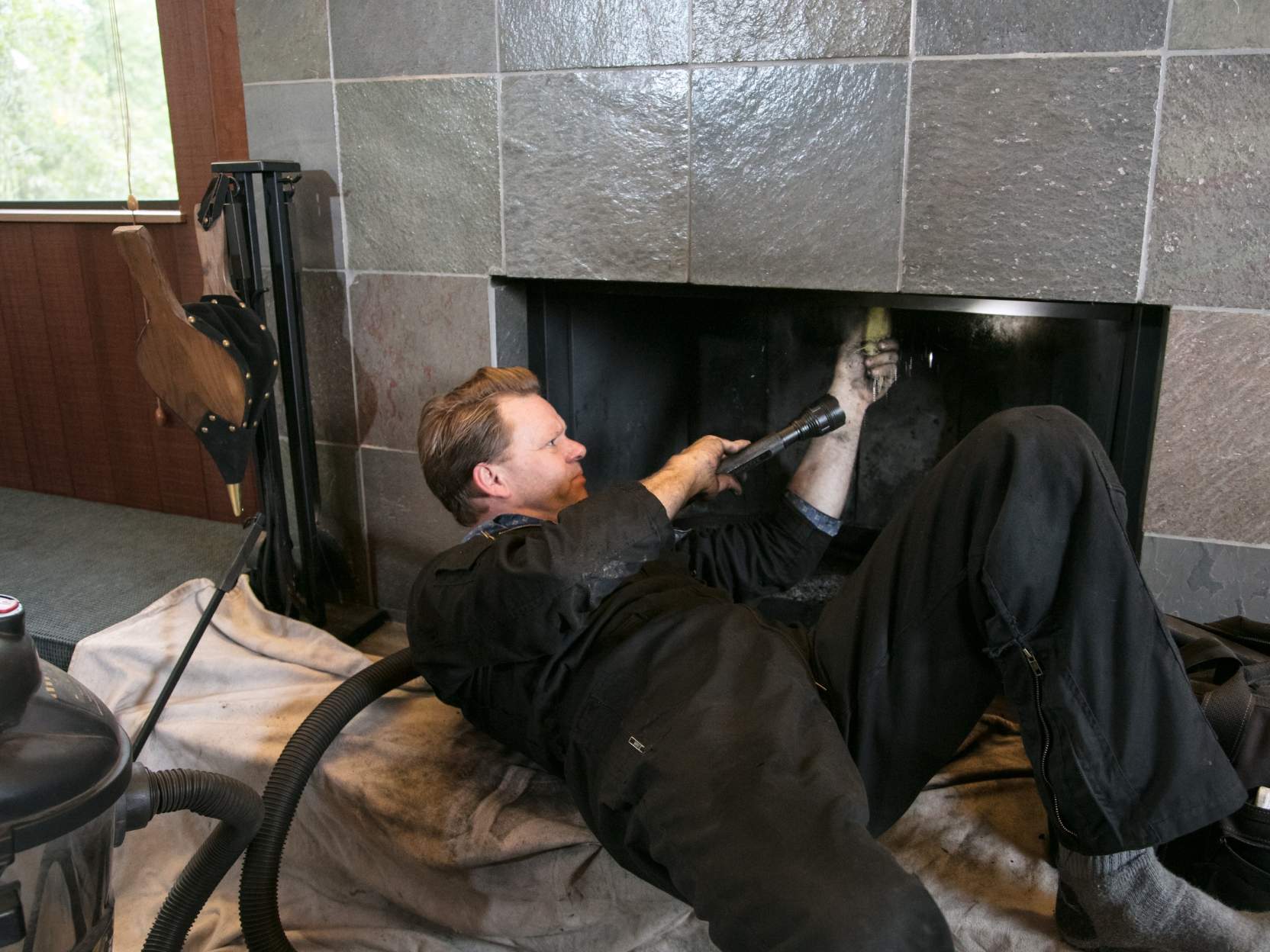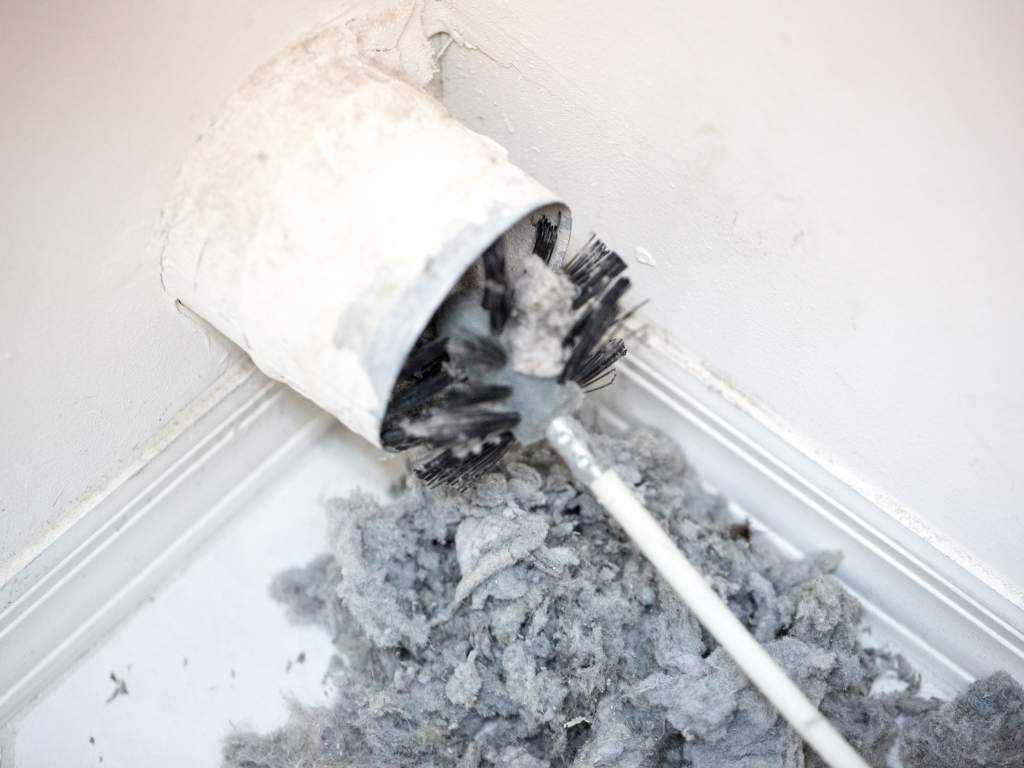Brick chimneys and metal chimneys might do the same job, but they don’t wear down the same way. If you own one, knowing how their repair needs differ can help you avoid surprises. Each material has its own pros and cons, and how they age can impact your home and your wallet.
Here’s a simple breakdown of what to expect when it comes to chimney repair for both types.
Why Chimney Material Matters
The material of your chimney affects:
- How it holds up against weather
- How often repairs are needed
- The type of repairs you might face
- How expensive repairs become over time
Ignoring these differences can lead to bigger problems. Would you rather catch issues early — or deal with major repairs later?
Common Repair Issues for Brick Chimneys
-
Mortar Deterioration
Mortar holds the bricks together and keeps the chimney strong. Over time, water and temperature changes cause the mortar to crack or crumble, leaving gaps between the bricks.
If you notice crumbling or gaps, schedule chimney repair before water gets in and makes the problem worse.
-
Spalling Bricks
Spalling happens when bricks absorb water, freeze, and then crack apart. You’ll often see flaking, chipping, or even pieces of brick falling near the base.
Sealing your bricks with a chimney-specific water-repellent product can help prevent this damage.
-
Chimney Leaks
Leaks can happen when water gets into mortar joints, the bricks themselves, or the flashing around the chimney base.
Left unchecked, leaks can cause mold, wood rot, and drywall damage inside your home. After heavy rain, check your attic and walls near the chimney for any damp spots.
-
Structural Leaning
Erosion and foundation problems can cause a brick chimney to lean over time. A leaning chimney is dangerous because it can collapse without warning. If you spot any tilting, call a professional for a structural inspection right away.
-
Crown Cracks
The crown is the concrete top that protects the chimney. Cracks in the crown allow water to seep into the chimney, leading to serious internal damage if ignored. Inspect the crown every year and reseal small cracks before they become a bigger issue.
Common Repair Issues for Metal Chimneys
-
Rust and Corrosion
Metal chimneys are tough but moisture can still cause rust and corrosion. Rust weakens the chimney’s structure and can create openings for dangerous gases to leak into your home. If you spot rust, especially around joints and flashing, have it repaired quickly.
-
Dents and Warping
Strong winds, falling branches, and ice buildup can dent or warp a metal chimney. Even small dents can block airflow or weaken the structure. After storms, inspect your chimney for any visible damage or shifts.
-
Insulation Breakdown
Most metal chimneys have built-in insulation to protect your home from heat transfer. When insulation breaks down, the risk of fire increases. To stay safe, have the insulation checked every few years during routine chimney inspections.
-
Loose or Missing Components
Metal chimneys are made up of several parts like caps, flashing, and storm collars. High winds and severe weather can loosen or remove these components, allowing water or pests to get inside. Replace any missing or damaged parts as soon as you notice them.
-
Discoloration
Discoloration on a metal chimney often points to overheating or gas leaks. Stains, burns, or color changes are serious warning signs. If you notice any discoloration, call a professional for a full inspection without delay.
Cost Comparison: Brick vs. Metal Chimney Repair
The cost of chimney repair depends on the damage and the material.
| Repair Type | Brick Chimney Average Cost | Metal Chimney Average Cost |
| Repointing Mortar | $500 – $2,500 | N/A |
| Replacing Damaged Bricks | $700 – $4,000 | N/A |
| Resealing/Waterproofing | $300 – $800 | $200 – $500 |
| Rust or Dent Repair | N/A | $300 – $1,500 |
| Full System Replacement | $6,000+ | $4,000 – $7,000 |
Brick chimneys often have lower-cost, frequent repairs. Metal chimneys might have fewer repairs, but when serious issues arise, they can mean full replacements.
Maintenance Tips for Both Chimney Types
Small preventive actions go a long way. Here are some maintenance tips for your brick or metal chimney:
Brick Chimneys
- Waterproof every 5-7 years.
- Repair minor mortar cracks early.
- Clear debris from chimney caps.
Metal Chimneys
- Apply anti-rust coating annually.
- Tighten loose flashing or storm collars.
- Check for insulation failure signs.
Which Chimney Type Needs More Frequent Repairs?
You might wonder: Is one chimney type easier to maintain than the other?
- Brick Chimneys: Require more frequent inspections and small repairs (especially to mortar and crowns).
- Metal Chimneys: Need fewer repairs but demand quicker action when rust or dents occur.
If you prefer regular, minor upkeep, brick chimneys fit your style. If you prefer less frequent but potentially larger repairs, metal chimneys might suit you better.
How to Know When You Need Professional Help
Some issues look minor but can lead to major damage.
Call a chimney expert if you notice:
- Leaning or shifting bricks
- Rust, warping, or missing parts on metal chimneys
- Water stains near the chimney inside your home
- Smoky odors when the fireplace isn’t in use
- Deteriorating mortar joints
Final Thoughts
Brick and metal chimneys both bring unique maintenance needs. Knowing the signs of wear — and acting fast — can save you thousands of dollars and keep your family safe.
At Neighborhood Chimney Services, we specialize in diagnosing, repairing, and maintaining all types of chimneys. Don’t wait for small problems to grow. Schedule your chimney inspection today!



